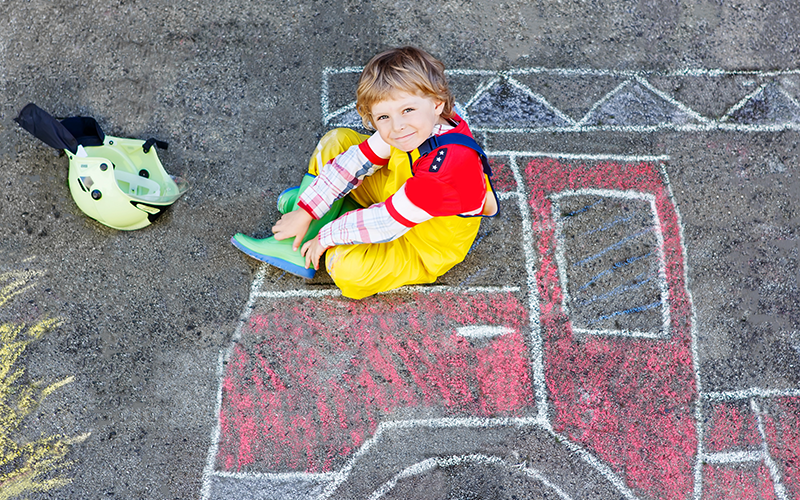The best way to teach children about fire safety is by example. Let your children see you being sensible and careful about cooking, candles and other potential fire risks. Find out more about talking to children about fire – and what they should do if there is one.
Fire is one of the most common causes of accidental injury and death among children. They are naturally drawn to the warmth and light of fire, but without proper guidance this can turn into a dangerous fascination. The following tips will help keep your children out of harm’s way.
Talking to your children about fire
Give children under five clear instructions of what they should and shouldn’t do. With older children, it’s better to also explain why. You will probably need to talk about fire safety more than once, to make sure they have remembered and understood what you have taught them.
Tell them:
- To tell a grown-up if they see matches or lighters lying around
- Never to play with matches, lighters or lighted candles
- Never to play, or leave toys close to a fire or heater
- Not to put things on top of heaters or lights
- Not to pull on electric cables or fiddle with electrical appliances or sockets
- Never to switch on the cooker or put anything on top of it
- Never to touch any saucepans on the cooker
Fire instructions for children
It’s important to talk through with children what to do if there’s a fire – don’t avoid it for fear of frightening them. Children need to know how to react, as there may not be an adult around to tell them what to do if a fire happens.
Here are the basic instructions to give to your children:
- If they see smoke or flames, they should tell someone straight away – a grown-up if possible
- Get out of the building as soon as possible
- Never go back into the building for anything
- Never hide in a cupboard or under a bed – get out of the house and call for help straight away
- Find a phone and call 999, and ask for the Fire and Rescue Service
Know your escape route
Plan an escape route and make sure that everyone in the house is familiar with it, including children, childminders and babysitters. Keep all exits clear and practise the escape plan with children.
Make your home safe for children
Here are some measures you can take in your home to make sure your children stay safe:
- Don’t leave children on their own in a room where there’s a fire risk
- Keep matches, lighters and candles in a place where children can’t see or reach them – and put child locks on cupboards
- Put a child-proof fireguard in front of an open fire or heater
- Don’t let children play or leave toys near a fire or heater
- Keep portable heaters in a safe place where they can’t be knocked over when they are being used or stored
- Never leave children alone in the kitchen when you’re cooking and never let them play near the cooker
- Make sure electrical appliances are switched off when they are not being used

